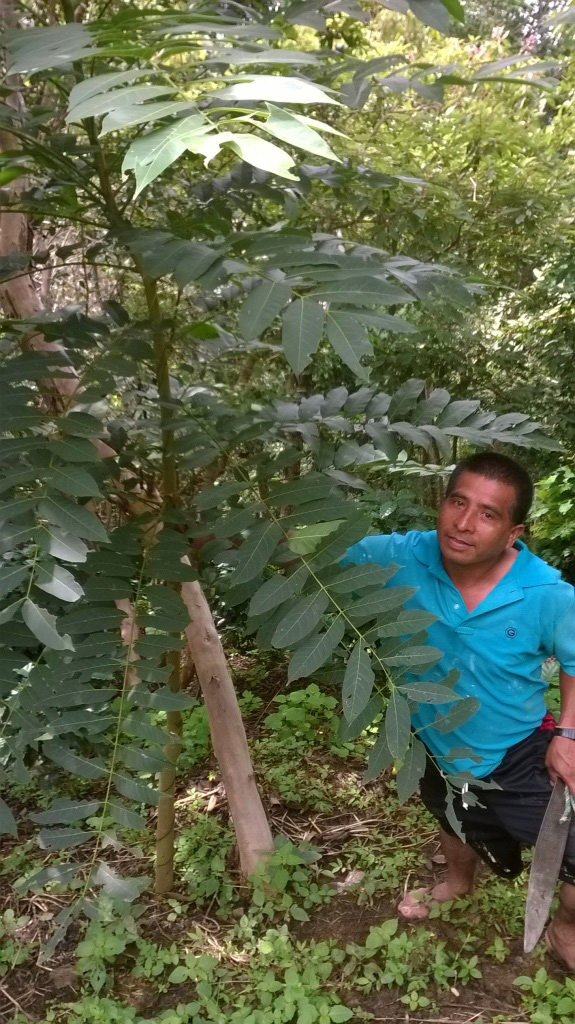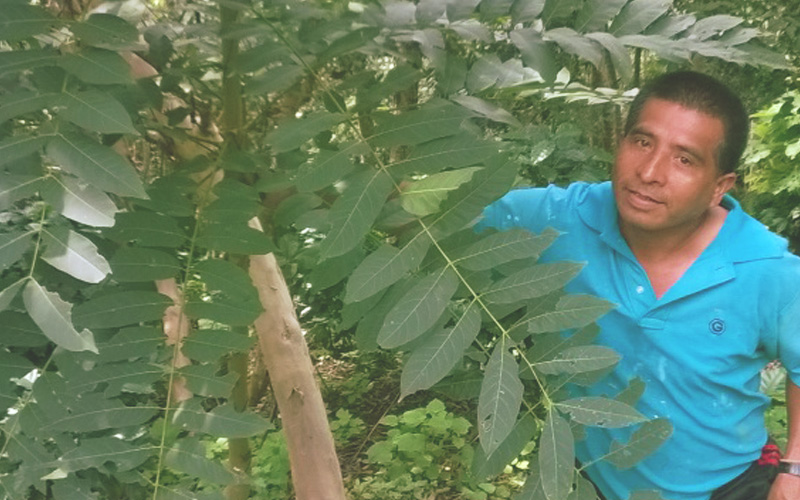Rainforest Alliance
CO2 Coffee Project
Mexico

Leandro Salinas, a coffee farmer and community leader from Santa Lucia Teotepec, poses next to a two- year old spanish cedar tree that was part of the project’s reforestation efforts within degraded coffee farms.
The CO2 Coffee project is designed to combat deforestation and mitigate the effects of climate change while also supporting communities seeking to improve their livelihoods. In collaboration with a local coffee cooperative and other partners, Rainforest Alliance is working with roughly 400 coffee farmers in Oaxaca’s Chatina and Zapoteca regions to: protect the region’s remaining forests; reforest degraded areas; promote the long-term sustainable production of coffee and increase their crops’ resilience to the impacts of climate change.
The farms involved in this project are located in the Santa Lucía Teotepec, San Juan Lachao Nuevo, Santa Rosa de Lima and Soledad Piedra Larga communities and are already Rainforest Alliance Certified™, meaning that farmers have met the rigorous standards of the Sustainable Agriculture Network (SAN) and adhere to on-farm methods that reduce waste, protect local ecosystems and promote social and community benefits. With the help of locally community technicians trained by the project, they are reforesting fallow farmland and increasing shade cover in their pasture areas and within their coffee farms by planting a mix of native timber and fruit tree species. These measures promote soil fertility, maintain the connectivity of wildlife habitat, and provide a valuable and sustainable supply of timber and fruit.
“To improve the soil, to make the most of the rain, planting more trees gives us more moisture, more oxygen and helps address global warming” comments Leandro Salinas, a Community Leader and farmer from the UNECAFE co-operative.
In addition, the project is officially registered with the Verified Carbon Standard (VCS), which establishes stringent protocols for assessing the project’s impacts on greenhouse gas emissions. Once verified, the farmers will be able to sell carbon credits on the voluntary market, and the project will become the first smallholder VCS reforestation project in Mexico to sell carbon credits.




